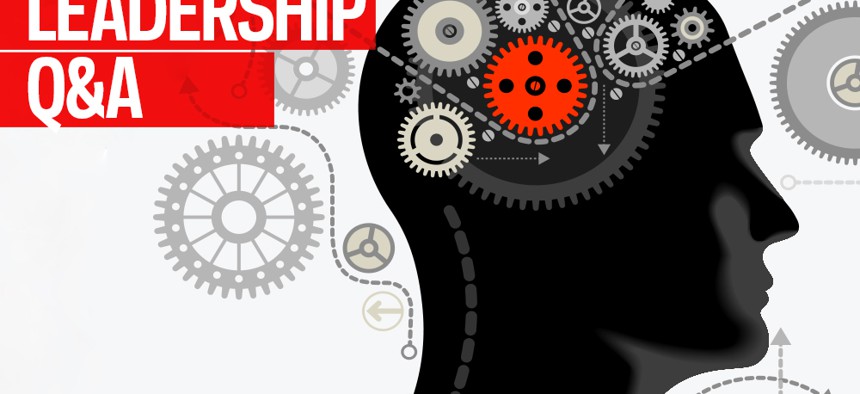
Image via VLADGRIN/Shutterstock.com
How I Lead: Leadership Lessons from State's Head of eDiplomacy
Director Richard Boly talks fear, managing up and how to turn ideas into action.
Richard Boly, a career diplomat, is the Director of the Office of eDiplomacy , an applied technology think tank at the U.S. Department of State. He created and launched the Global Entrepreneurship Program and currently sits on the board of Mind the Bridge , a start up accelerator bringing entrepreneurs from the distressed economies of southern Europe to Silicon Valley.

What leadership lessons do you try to convey to your team?
Fear is not your friend. Fear is a horrible motivator. Maybe it worked when saber-toothed cats were prowling, but not in a professional work environment. Fear kills creativity. Fear feeds self-doubt. So, I do all I can to tamp down the fear factor among my team.
What do you look for in potential employees when making hiring decisions?
eDiplomacy is a very entrepreneurial organization. The two qualities I most look for are 1) curiosity, and 2) comfort with ambiguity.
What is a good book you've read recently?
Fiction - Swamplandia! by Karen Russell
Non-Fiction - Clash!: 8 Cultural Conflicts That Make Us Who We Are by Hazel Rose Markus and Alana Conner
What do you do after work for fun or to relax?
I am a big fan of puttering and tinkering. I do both around the house a lot.
What is the best mistake you've ever made?
I pursued a “dream” job early in my career. After lots of follow up, I landed the position over hundreds of other candidates. It was a bad fit and I only lasted six months. I took that sharp-edged, jarring failure and over time polished it into lessons about myself and work. If you can face it honestly and truthfully, failure is a powerful teacher.
What superlative would your high school classmates have given you?
In high school, I would have been voted, "Most likely never to return for a homecoming."
Describe your average day in 10 words or less.
Bike, muse, check, link, do, talk, connect, lateral-think, squint, bike.
What strengths do you bring your organization?
I am good at innovating in risk-averse environments. All large organizations tend to be risk-averse, but government agencies especially so.
What is your weakness and how do you compensate for it?
I am a non-linear thinker. I usually have an entire concept in mind for a new initiative, but I don’t always get it across in a clear and convincing way. I compensate for this by ensuring that my team builds in practical processes for developing and filtering new initiatives.
What is your strategy for interactions with your supervisor?
Managing up is essential. It starts with the interview with a prospective supervisor. Be honest about your work style and which of your work qualities have thrilled supervisors in the past and which ones have driven them crazy. Share what qualities in a supervisor have helped you succeed and which ones tripped you up. If you have a good match with your supervisor from the start, it makes it much easier to manage up. If you have a supervisor who makes you dread coming into work, then look for a new job!
How do you involve your employees to ensure everyone is on board with a new idea?
I am a volcano of ideas and encourage my team to help winnow the wheat from the chaff. I try to avoid personalizing ideas, but rather frame them as an opportunity for the group. My team has created a very practical and agile project initiation checklist to ensure we have asked the right questions before jumping in. I also try to map between high-level State Department objectives and the new idea, so that my team can see how the initiative will contribute to policy objectives.
What motivates you?
I love greenfield opportunities – ones that lack constraints imposed by prior work. I love turning ideas into action. I love creating an environment in which my team can achieve more than they ever dreamed possible.
Other posts in Excellence in Government and Young Government Leader's How I Lead series:
- Talking Leadership with DHS' Manager of SES Candidate Development
- Leadership Lessons from a NASA Director







